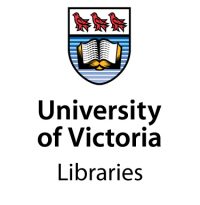Have you ever considered using open education resources for your course? Not only does it save the students money, it can give you more flexible control over the content. If you haven’t found the right resource – consider creating one! Contact the UVic Office of Scholarly Communication for guidance and support.
Here are some examples of resources available to you:
1. Introduction to Psychology – 1st Canadian Edition ((CC BY-NC-SA)
This book is designed to help students organize their thinking about psychology at a conceptual level. The focus on behaviour and empiricism has produced a text that is better organized, has fewer chapters, and is somewhat shorter than many of the leading books. The beginning of each section includes learning objectives; throughout the body of each section are key terms in bold followed by their definitions in italics; key takeaways, and exercises and critical thinking activities end each section.
2. Research Methods in Psychology – 2nd Canadian Edition (CC BY-NC-SA)
Psychology, like most other sciences, has its own set of tools to investigate the important research questions of its field. Unlike other sciences, psychology is a relatively new field with methods and practices that are evolving at a rapid rate. With this textbook, we introduce students to the fundamental principles of what it is like to think like a psychology researcher. We also hope to connect with the Canadian audience to show them the fantastic research being generated in Canada as well as provide them with an accurate picture of the Canadian context for ethical human research.
3. Principles of Social Psychology – 1st International Edition (CC BY-NC-SA License)
The first International edition of this textbook provides students with an introduction to the basic concepts and principles of social psychology from an interactionist perspective. The presentation of classic studies and theories are balanced with insights from cutting-edge, contemporary research. An emphasis on real world examples and applications is intended to guide students to critically analyze their situations and social interactions in order to put their knowledge to effective use.
4. “Noba is a free online platform that provides high-quality, flexibly structured textbooks and educational materials. These textbooks and materials are licensed under the Creative Commons CC BY-NC-SA 4.0 International License. Users may reuse, redistribute, and remix the content to suit their needs. The goals of Noba are three-fold – http://nobaproject.com/
- To reduce financial burden on students by providing access to free educational content
- To provide instructors with a platform to customize educational content to better suit their curriculum
- To present free, high-quality material written by a collection of experts and authorities in the field of psychology” – funded by The Diener Education Fund2
